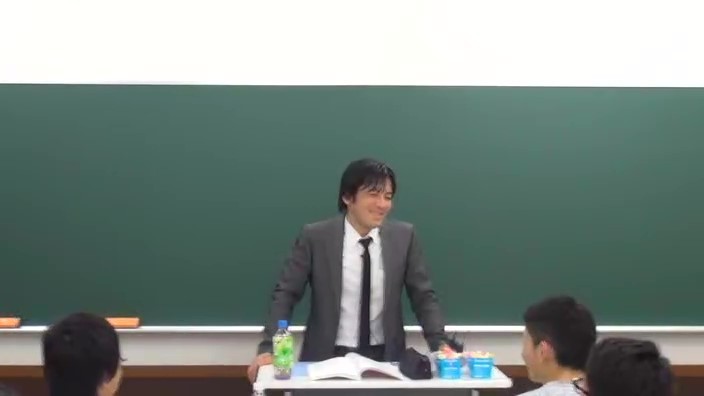大学入試 アウトプット英単語50 ①
本記事は独学・国内学習による
英検1級保持者が書きました。
このシリーズは絶秒な良問のみで構成しています。
対象の大学レベルは国公立・早慶・MARCH 等です。
英検準1級・2級でライティング対策にも有効です。
それでは早速、
全25問、1問あたり30秒を目安にアタックしてみましょう。
次の英文の空所に適切な語を補って音読してください。
076
アメリカ人は質問に対して,正直で誠実な答えを期待しているし,また答えをそういうものとして受けとめるだろう。
Americans expect honest, sincere answers to their questions, and they will take answers as ( ).
Americans expect honest, sincere answers to their questions, and they will take answers as
such.
▸ as such「そのようなものとして」
Americans expect honest, sincere answers to their questions, and they will consider responses as such.
Americans expect honest, sincere answers to their questions, and they will view replies in that manner.
077
その演劇のプログラムを返してくれないか。学校で演劇のプログラムがとても必要なんだよ,コニー。
I’d like you to bring back the drama program. Connie, the school is ( ) in
need of a drama program.
I’d like you to bring back the drama program. Connie, the school is badly in need of a drama
program.
▸ badly にはwant, need, be in need of A 等を強調する用法がある。
I’d like you to bring back the drama program. Connie, the school desperately requires a drama program.
I’d like you to bring back the drama program. Connie, the school is in dire need of a drama program.
078
若いころ,数学は私の好きな教科でした。
Mathematics ( ) my favorite subject when I was young.
Mathematics was my favorite subject when I was young.
▸ 学問・学科名は単数扱い
Mathematics was my favorite subject when I was young.
When I was young, mathematics held the top spot as my favorite subject.
079
「これらの文書は明日の朝一番に用意されていなければならないんですね」
「その通り。私たちは,なんとかして今日やってしまわなければならない」
“These documents have to be ready first thing tomorrow morning?”
“That’s right. Somehow we’ve got to ( ) ( ) ( ) today.”
“These documents have to be ready first thing tomorrow morning?”
“That’s right. Somehow we’ve got to get them done today.”
▸ get A done「A を…してしまう」
"These documents have to be ready first thing tomorrow morning?"
"That’s right. We absolutely need to get them done today."
"These documents have to be ready first thing tomorrow morning?"
"That’s right. There’s no choice but to get them done today."
080
この時計は壊れているので,ひとつ時計を買わなければならない。
This watch is broken, so I must buy ( ).
This watch is broken, so I must buy one.
▸ one は〔可算名詞〕の反復を回避する〈代名詞〉で不特定のものを指す。
This watch is broken, so I must purchase a new one.
This watch is faulty, so I have no option but to buy another one.
081
もし雨がやめば,今日の午後野球をすることになっています。
We are going to play baseball this afternoon if it stops ( ).
We are going to play baseball this afternoon if it stops raining.
▸ stop doing「…するのをやめる」
We are going to play baseball this afternoon if the rain stops.
If the rain stops, we are going to play baseball this afternoon.
082
日本人は一人ではめったに旅行に出ません。
Japanese people ( ) ever go on a trip alone.
Japanese people hardly [scarcely] ever go on a trip alone.
▸ hardly[scarcely] ever「めったに…ない」(=seldom [rarely])
Japanese people almost never go on a trip alone.
Japanese people scarcely ever embark on solo trips.
083
もし彼らが援助を申し出ていたならば,もっとよい橋が建設されていただろう。
A better bridge could have been built ( ) ( ) ( ) assistance.
A better bridge could have been built had they offered assistance.
▸ 仮定法過去完了の条件節からif 省略による倒置形。
If they had offered assistance, a better bridge could have been built.
Had they offered assistance, a better bridge could have been constructed.
084
これらのバスのどれでも乗ることができます。みんな都心に行きます。
You can catch ( ) of these buses. They all go to the city center.
You can catch any of these buses. They all go to the city center.
▸ any of A「A の中のどれでも」《肯定文中で用いる》
You can catch any of these buses. They all head to the city center.
All of these buses go to the city center, so you can catch any of them.
085
どんなにみすぼらしくとも,わが家にまさる所はない。
( ) it ever so humble, there is no place like home.
Be it ever so humble, there is no place like home.
▸ Be it ever so humble =No matter how humble it may be〈譲歩〉
No matter how humble it may be, there is no place like home.
There is no place like home, no matter how humble it may be.
086
このとおり丘の上に立っているので,そのレストランは眺めがすばらしい。
Standing as it ( ) on a hill, the restaurant commands a fine view.
Standing as it does on a hill, the restaurant commands a fine view.
▸ as S do を現在分詞の直後に置いて分詞構文の分詞の意を強調する用法。
Standing on a hill, the restaurant offers a fine view.
The restaurant, standing on a hill, commands a fine view.
087
スー,駅に行く途中,忘れずにこの手紙を出してね。
土曜日までにブライアンに届かなければならないから。
Sue, please don’t forget ( ) ( ) this letter on your way to the station. It
has to get to Brian by Saturday.
Sue, please don’t forget to mail this letter on your way to the station. It has to get to Brian
by Saturday.
▸ forget to do「…することを忘れる」
Sue, please don’t forget to mail this letter on your way to the station. It has to reach Brian by Saturday.
Sue, please make sure to mail this letter on your way to the station. It must get to Brian by Saturday.
088
彼は私よりも英語をじょうずに話す。
He is ( ) to me in speaking English.
He is superior to me in speaking English.
▸ =He is a better speaker of English than I.
He speaks English better than I do.
I am not as good a speaker of English as he is.
089
爆発の威力がとても大きかったので,すべての窓ガラスが粉々に砕けた。
( ) was the force of the explosion that all the windows were broken into pieces.
Such was the force of the explosion that all the windows were broken into pieces.
▸ Such is S that …「S は…するほどのものだ」(=S is so great that … )
Such was the force of the explosion that all the windows shattered into pieces.
The explosion was so great that all the windows were broken into pieces.
090
6 か月以内に返すという条件で,君にお金を貸しましょう。
I’ll lend you the money ( ) condition that you return it within six months.
I’ll lend you the money on condition that you return it within six months.
▸ on condition that …「…という条件で,…ならば」
I’ll lend you the money under the condition that you return it within six months.
I’ll lend you the money, but you must return it within six months as a condition.
091
どちらの政党が政権に就こうとも,イギリスの外交政策は同じままですか。
Does British foreign policy remain the same, ( ) party is in power?
Does British foreign policy remain the same, whichever party is in power?
▸ whichever N (S) V「どちらのN が~であろうと」〈譲歩の副詞節〉
Does British foreign policy remain the same, regardless of which party is in power?
Does British foreign policy remain constant, no matter which party is in power?
092
その男は,手が凍えないように火を起こした。
The man built a fire in order to keep his hands ( ) freezing.
The man built a fire in order to keep his hands from freezing.
▸ keep A from doing「A が~するのを妨げる」(=prevent A from doing)
He built a fire to keep his hands from freezing.
He built a fire in order to prevent his hands from freezing.
093
あなたが50 歳になるまでには,世界は大きく変わっているでしょう。
( ) ( ) ( ) you are fifty, the world will have greatly changed.
By the time you are fifty, the world will have greatly changed.
▸ by the time SV「…するまでには」
By the time you reach fifty, the world will have changed significantly.
The world will have greatly changed by the time you reach fifty.
094
彼女は自分の部屋の壁にたくさんのポスターを貼っているところだ。
She is putting a lot of posters ( ) the walls of her room.
She is putting a lot of posters on the walls of her room.
▸ on の基本義〈表面接触〉
She is putting up a lot of posters on the walls of her room.
She is placing many posters on the walls of her room.
095
大半の日本人は,お米を食べるのが好きです。
( ) ( ) Japanese like to eat rice.
Almost all Japanese like to eat rice.
▸ almost all+名詞 = most+名詞「大半の…」
Almost all Japanese people enjoy eating rice.
Most Japanese people like to eat rice.
096
あなたはその計画に賛成ですか,それとも反対ですか。
Are you for the plan or ( ) it?
Are you for the plan or against it?
▸ against「反対」
Are you in favor of the plan or opposed to it?
Do you support the plan, or are you against it?
097
あなたが戻ってくるまで,私はテレビを見ながら家にいます。
I’ll be at home watching TV until ( ) ( ) ( ).
I’ll be at home watching TV until you come back.
▸ until で導かれるのは時の副詞節なので〈現在時制〉
I’ll be at home watching TV until your return.
I’ll stay at home watching TV until you come back.
098
夜よく眠れば,ずっと気分が良くなることでしょう。
I am sure you will feel a lot better if ( ) ( ) a good night’s sleep.
I am sure you will feel a lot better if you have a good night’s sleep.
▸ if で導かれるのは条件の副詞節なので〈現在時制〉
I am sure you will feel much better if you get a good night’s sleep.
If you get a good night’s sleep, I am sure you will feel much better.
099
私が彼に話しかけるとすぐに彼は立ち去った。
Hardly had I spoken to him ( ) he left.
Hardly had I spoken to him when [before] he left.
▸ Hardly had S done … when[before] ~ 「…するとすぐに~」
No sooner had I spoken to him than he left.
Before I could finish speaking to him, he left.
100
私のバッグが盗まれたので,できるだけ早く警官を見つけなければならない。
I have to find a policeman as soon as possible because my bag
( ) ( ) ( ).
I have to find a policeman as soon as possible because my bag has been stolen.
▸ have been done ―〈完了形の受動態〉
I have to find a policeman as soon as possible because someone stole my bag.
Because my bag has been stolen, I need to find a policeman as soon as possible.
今後も英語学習の情報を発信していきます。








